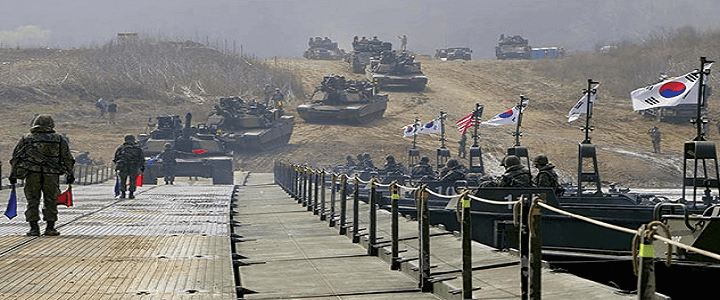President Donald Trump is in an impossible position.
His critics are so set on finding fault with everything he does or says that his every move is automatically assumed to be wrong, even if the critics contradict their previous criticisms. So it is with the latest news in the ongoing — really, just beginning — denuclearization negotiations with the Democratic People’s Republic of Korea.
Trump’s June summit in Singapore with DPRK strongman Kim Jong-un was just the appetizer. Secretary of State Mike Pompeo left Washington Thursday morning for North Korea. He will be in Pyongyang Friday and part of Saturday to begin the main course. Word leaking from the administration is that the U.S. delegation will be taking a softer stance on the “complete, verifiable, and irreversible denuclearization” position that has been U.S. policy to date.
Is FFVD the same as CVID?
The State Department on Tuesday departed from the “CVID” language, speaking instead of “the final, fully-verified denuclearization of the DPRK.” The difference is subtle, and yet striking. Asked whether the change in language meant the U.S. was backing off CVID, the State Department told Washington Post reporter Adam Taylor that the policy remains the same. But the response did not directly address the shift in language.
A Reuters headline on Wednesday proclaimed “U.S. softens North Korea approach,” and cited two anonymous officials who said the U.S. has “stepped back” from the CVID stance. And some of the same people who said CVID was too hard of a stance to begin with are now complaining that the U.S. is, rhetorically at least, backing off of it.
Yes, CVID was a maximalist position, and one I still believe to be the correct path to a stable, long-term peace on the Korean Peninsula. But it’s dangerous, leaks not withstanding, to assume that the U.S. is truly backing off the spirit behind the phrase without further evidence. If CVID itself was a roadblock to further progress, then changing the words to make the North Koreans feel better is a good move. North Korea feels better about the process, the U.S. position hasn’t changed, and the talks can move forward.
Give some to get some
The Singapore summit, if we’re being completely frank, didn’t accomplish much. The U.S. extracted no new concessions of commitments from the DPRK, and the U.S. made a few token gestures. But it put the two sides on a path to further engagement. From the start, I have disagreed with critics who claimed simply meeting with Kim was a concession. I believe the president was doing what needed one done to get the talks going. If simply coming to the table is going to be considered a concession, there’s really not much room to improve.
Furthermore, the cancellation of this year’s Ulchi Freedom Guardian combined exercises with the Republic of Korea military should be a non-issue. Neither U.S. nor ROK readiness will suffer a catastrophic degradation by skipping one year, Trump gets to brag about the cost savings, and Kim and his generals keep their blood pressure under control.
Secretary Pompeo is a tough, brilliant man. Not only did he graduate a the top of his class at West Point, a colleague of mine, who is one of the only people who can make me feel stupid just by talking, and who also graduated with Pompeo, calls him the smartest person he’s ever shared a room with. I also know from personal experience on Capitol Hill that he is a man of principle who doesn’t retreat from his ideals for the sake of expedience or convenience. I can think of no better representative of the administration’s position, or anyone better-suited to hold the line against DPRK intransigence.
I doubt that Kim and his generals think they’ve really extracted much from the U.S. But if they do, they are in for a surprise.



